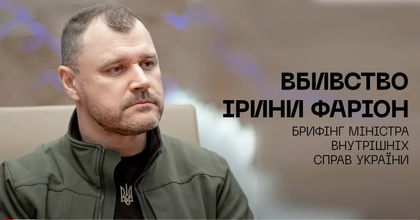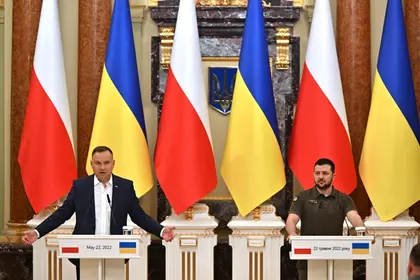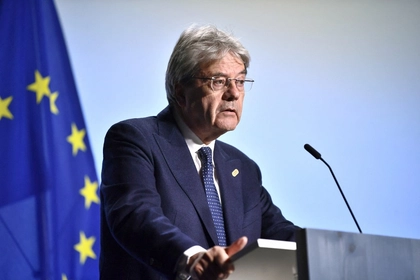President Volodymyr Zelensky is expected to visit Poland, Ukraine’s key ally, on Wednesday, April 5. Unlike previous international visits by Zelensky, the Warsaw trip has been made public in advance by the Office of the President of Poland.
“The visit will take place at the invitation of President Andrzej Duda,” the Polish President’s foreign affairs adviser Marcin Przydacz said on Monday to media outlets. “There will be long, broad talks, not only about the security situation, but also about economic and political support.”
JOIN US ON TELEGRAM
Follow our coverage of the war on the @Kyivpost_official.
The specific matters that may be discussed, according to Przydacz, are: “security issues, regional politics, economic cooperation, historical matters lingering between the two neighbors, [and] transit of Ukraine’s grain and other farm produce through Poland.”
During the presidential-level discussions, the first since December, and a meeting between President Zelensky and Polish Prime Minister Mateusz Morawiecki, there are several aspects to look out for.
1) Committing to more military aid
According to the Kiel Institute’s respected tracker, Poland is the world’s fourth most generous provider of overall support to Ukraine on a GDP basis (or €3.559 billion) with the Baltic countries ahead of it. It is also fourth on a GDP basis in terms of military support (or €2.428 billion).

Farion’s Killer Prepared Disguises, Had Another Victim in His Sights, Interior Minister Says
In mid-March, Poland pledged – together with Slovakia – to be the first countries to provide Ukraine with fighter jets. Poland promised four Soviet-era MiG-29s, which Ukrainian pilots are already trained to fly. Poland has a fleet of 28 MiG-29s; at the time of the mid-March announcement, President Duda indicated that Poland is likely to provide up to a dozen more jets. (Poland’s own fleet is being replaced with South Korean and U.S. jets.)
Poland has committed more than 270 tanks to Ukraine, including some 260 Soviet-era T-72s and 14 Leopard 2 tanks that have been operational since March.
Discussion of current and future military aid by Poland comes in the operational context of the much-flagged Ukrainian counteroffensive and its specific requirements for success.
On the eve of Zelensky’s visit to Poland, NATO foreign ministers are meeting in Brussels on April 3-4, where they are expected to work on a multi-year support program for Ukraine from a strategic and policy perspective. Ukraine’s Foreign Minister Dmytro Kuleba will be attending.
2) Managing the politics of Poland and Eastern Europe
With Poland’s parliamentary elections scheduled for November 2023, the campaigns them and their results are likely to have an impact on the Ukraine-Poland relationship.
While the Polish opposition appears to be gaining in some polling, it will not have enough support for an outright majority or to readily build a governing coalition with minor parties. One scenario is of a potential future coalition between the ruling Law and Justice party and Konfederacja, a conservative party that appears to having rising levels of support. Konfederacja is anti-EU and wary about support for Ukraine, which may shift official positions in due course.
Moreover, there is a changing political landscape across Eastern Europe that may have implications both for the Ukraine-Poland relationship and for overall support for Ukraine, including three elections last weekend.
The Bulgarian general election, in which Ukraine policy was a divisive issue, was narrowly won by the center-right GERB, which will now seek to form a coalition government. GERB’s anti-EU leadership has been very critical of the Ukraine policy of the outgoing government of Kiril Petkov; it has criticized sanctions against Moscow as ineffective, said Crimea is Russian, and labelled opponents who support arming Ukraine as warmongers.
In Finland, the staunchly pro-Ukraine Prime Minister Sanna Marin and her party lost government to the center-right National Coalition Party. It is likely that NCP will need to form a coalition with an isolationist, anti-immigration party further to the right, The Finns. However, an anti-Russia stance appears to be consistent across the Finnish political spectrum, including NCP and The Finns.
In Montenegro, the Presidential election was won by the center-right but pro-EU Europe Now Movement’s Jakov Milatović, who has been critical of the defeated President for his pro-Russian stances.
Such developments can have an impact on EU unity around Ukraine support and may feature in Zelensky’s discussions.
3) Planning future arrangements for Ukrainians in Poland
President Zelensky, who will be accompanied by First Lady Olena Zelensky, has said that he will be meeting with regular Ukrainians currently living in Poland during his visit.
Since the beginning of the full-scale invasion, more than 1.5 million Ukrainians have become refugees in Poland, the most that any European country has accepted. The cost to Poland is estimated at some €8.3 billion or some €200 per Pole. The current group of refugees join some 1 million Ukrainians already living in Poland, including for economic reasons.
Eligible Ukrainian refugees in Poland can have free access to childhood education, public healthcare, and social services, and have permission to create businesses.
While millions of Poles were fast and generous with their help to fleeing Ukrainians, including some 60% of them who personally assisted someone in early 2022, support levels for Ukraine among Poles appear to have fallen somewhat. In early 2022, support levels in some surveys were over 80%; they now appear to be over 60% (which is still strong in relative terms).
The sustainability of current trends and arrangements may come under discussion, including Ukraine’s interest in having refugees return.
Discussions around border-crossing issues also broadly fall under this heading; due to Black Sea security issues, Ukrainian grain harvests are now overwhelmingly reliant on passage into Poland to reach export markets.
You can also highlight the text and press Ctrl + Enter






